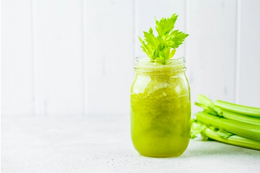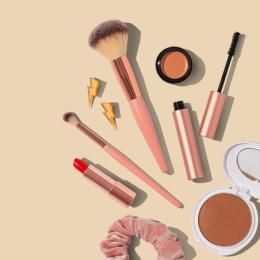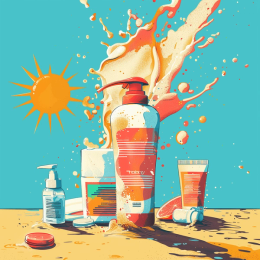Does Shampoo Cause Acne? Skin Experts Say Yes + Top 5 Brands

By Wildr Editor
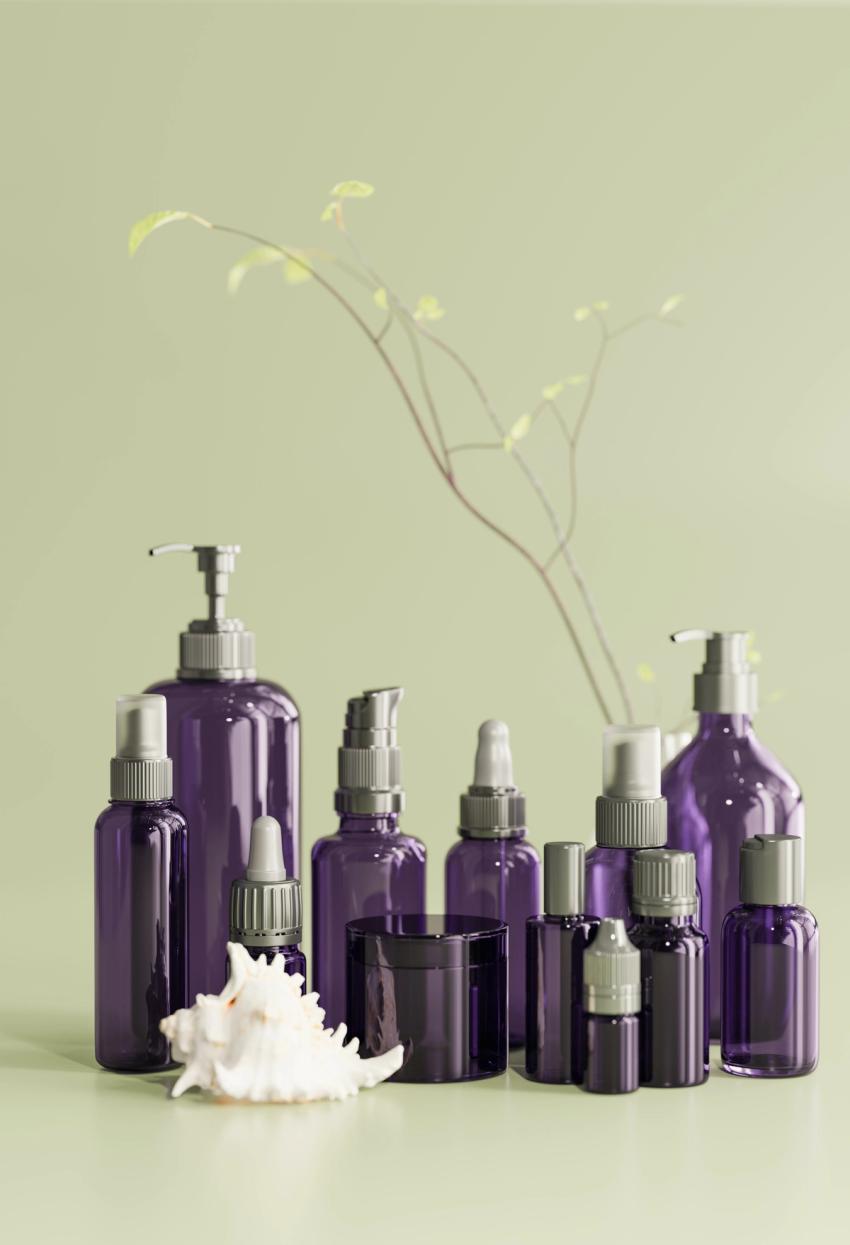
Introduction
Let's face it, dealing with acne is never a walk in the park. But did you know that your shampoo might be an undercover acne culprit? Buckle up, as we dive into the shampoo-acne connection and explore the world of hair care products, their acne-inducing ingredients, and the path to clear skin through natural, healthier shampoo choices.
Understanding Acne: It's Complicated
Acne is that uninvited guest that shows up when you least expect it. Genetics, hormones, and diet are some of the usual suspects that play a role in your overall health including your skin. But your personal care products might also be secretly contributing to the chaos.
The American Academy of Dermatology (AAD) confirms that your hair care products might be the cause for those pesky breakouts and adult acne.
Hair Care Products: Acne's Partner in Crime
Our favorite hair products, like shampoo and conditioner, may contain some ingredients that can trigger excess oil production, clog hair follicles, and contribute to acne cosmetica.
Many shampoos contain acne-triggering ingredients like sulfates, silicones, and synthetic fragrances. Not only do they irritate your skin, but they also love to hang around and clog your pores. Plus, these ingredients aren't exactly eco-friendly – they contribute to water pollution and just refuse to break down.
When these chemicals are washed down the drain, they can accumulate in rivers, lakes, and oceans, causing harm to aquatic life and disrupting delicate ecosystems. If it’s toxic to the environment, do you really want to put it on your skin?
Oily Offenders: Ingredients to Watch Out For
Too much of a good thing can be a bad thing. Even some natural oils can clog pores depending on your skin type. Keep an eye out for these ingredients if you suspect your shampoo + conditioner is causing breakouts:
- Comedogenic oils: Some oils can clog pores and contribute to acne, such as coconut oil and mineral oil. It's important to note that not all oils are comedogenic; some, like tea tree oil and jojoba oil, can be beneficial for acne-prone skin.
- Sodium lauryl sulfate (SLS) and sodium laureth sulfate (SLES): These common surfactants can strip the skin of its natural oils, leading to dryness, irritation, and potentially increased oil production, which can contribute to acne.
- Fragrances: Synthetic fragrances can be irritating for some individuals, particularly those with sensitive or acne-prone skin. Opt for fragrance-free products or those with natural fragrances from essential oils.
- Silicones: Some silicones, such as dimethicone, can cause product buildup and potentially clog pores, especially if not properly washed out. While not all silicones are comedogenic, it's essential to monitor your skin's reaction to products containing them.
- Alcohol: Ingredients like isopropyl alcohol and denatured alcohol can be drying and irritating to the skin, disrupting its natural barrier and potentially contributing to acne.
- Parabens: Although parabens are not directly linked to acne, some people may experience skin irritation or sensitivity to these preservatives.
How Often Should You Wash Your Hair?
According to Joshua Zeichner, M.D., director of cosmetic and clinical research in dermatology at Mount Sinai Hospital in New York City, those with oily hair can safely wash their hair daily. Others with dry hair or sensitive scalps may choose to wash their hair less often, based on their needs.
Some people may wash their hair every day, while others may only do so every one to two weeks. Ultimately, it comes down to personal preference.
10 Signs to Watch For Switching Your Shampoo
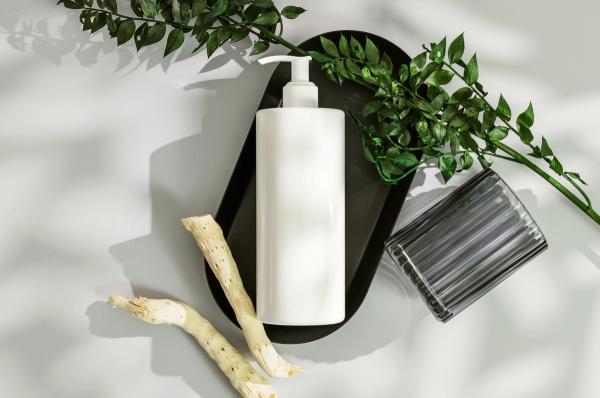
- Breakouts along the hairline: If you notice acne primarily along your hairline, it could be a sign that your shampoo is causing irritation and clogging pores in that area.
- Acne on the forehead and temples: Similar to hairline breakouts, acne on the forehead and temples can indicate that shampoo ingredients are coming into contact with your skin and contributing to breakouts.
- Sudden onset of acne: If you recently switched to a new shampoo and started experiencing breakouts, it might be due to the new product's ingredients.
- Increased skin irritation: Redness, itching, or inflammation around the areas where your hair comes into contact with your skin can signal that your shampoo may be causing irritation.
- Persistent breakouts: If your acne doesn't improve despite using over-the-counter treatments and maintaining a consistent skincare routine, your shampoo could be a contributing factor.
- Worsening acne after hair washing: This one’s obvious and it could be a major sign to switch.
- Oily scalp and skin: Some shampoos may cause excessive oil production, which can lead to clogged pores and acne. If you notice an oily scalp and skin, your shampoo might be the culprit.
- Clogged pores: If you see an increase in blackheads and whiteheads, especially around the hairline.
- Excessive dryness or flakiness: Some harsh shampoo ingredients can strip the skin of its natural oils, leading to dryness and flakiness. This can trigger an overproduction of oil, which may contribute to acne.
- Allergic reactions: If you experience an allergic reaction, such as hives, rash, or swelling, in addition to acne, it might be due to an ingredient in your shampoo.
If you notice any of these signs, consider trying a different shampoo with gentle, natural ingredients, or consult a dermatologist for personalized advice and recommendations.
Customizing Your Hair Care Routine: The Key to Victory Over Acne
To keep acne at bay, look for shampoos and hair care products that are labeled "non-comedogenic" and contain acne-fighting ingredients such as salicylic acid, glycolic acid, or zinc pyrithione. Tea tree oil, known for its antibacterial properties, is another excellent ingredient for acne-prone skin.
Finding the best shampoos and hair care products for your skin and hair types may take some trial and error. Don't be afraid to experiment with new products and treatment options, like anti-dandruff, dry shampoo, and shampoo bars that also act as body wash. But be patient, because all products take time to take effect.
Moderation is always key with anything, especially if you have sensitive skin. Always consult a board-certified dermatologist if you're unsure or if your acne persists.
Clear Skin Allies: Natural Ingredients Your Skin Will Love
Aloe Vera
Aloe vera is a natural moisturizer that can help soothe the scalp and promote hair growth without causing acne.
Chamomile
Chamomile is known for its anti-inflammatory properties, which can help soothe irritated or acne-prone skin.
Green Tea Extract
Green tea extract contains antioxidants and anti-inflammatory properties that can help keep the scalp healthy and potentially reduce the risk of acne.
Neem Oil
Neem oil is known for its antibacterial and anti-fungal properties, which can help combat acne-causing bacteria.
Peppermint Oil
Peppermint oil can help to soothe the scalp, reduce inflammation, and control excess oil production, making it suitable for those with acne-prone skin.
These ingredients are researched and vetted by the NIH - National Library of Medicine.
Sustainable and Skin-Friendly Shampoo Alternatives
Many sustainable shampoo brands prioritize both skin health, natural ingredients, and environmental responsibility, striking the perfect balance for a clear skin and greener world. Here are our top 5 favorites.
Our Top 5 Favorite Natural Shampoos:
1. EVOLVh
- Ingredients: seaweed extract, rose hip oil, chamomile flower extract, sunflower seed oil
- Brand Ethics: certified by ECOCERT, Credo Clean Standard. Partner with Pact, a nonprofit organization that collects hard-to-recycle beauty product packaging.
2. Ethique
St Clements™ Clarifying Solid Shampoo Bar
- Ingredients: castor oil, vegetable glycerine, lime oil, cocoa butter
- Brand Ethics: certified-vegan, cruelty-free, palm-oil free
3. Wild Naturals
Eczema & Psoriasis Shampoo & Conditioner Set
- Ingredients: Note this product includes coconut oil, but also includes other skin & hair healthy ingredients like: aloe vera, manuka honey, cehami flower.
- Brand Ethics: cruelty-free, made in the USA, sustainable & organic ingredients
4. 100% Pure
Burdock and Neem Healthy Scalp Shampoo
- Ingredients: nettle, kelp, neem oil, burdock
- Brand Ethics: cruelty-free, 1 order plants 1 tree, biodegradable formulas, recyclable shipping boxes
5. Avalon Organics
Scalp Treatment Tea Tree Shampoo
- Ingredients: tea tree oil, aloe vera, quinoa protein, Vitamin E
- Brand Ethics: EWG Verified, Certified NSF, the American National Standard for personal care products containing organic ingredients
Bonus Tips for Clear Skin and Sustainable Hair Care
Here's how you can fight acne and support a sustainable lifestyle at the same time, with expert advice:
- Rinse your hair thoroughly to ensure no shampoo residue lingers on your skin.
- Wash your face after shampooing to remove any potential acne-triggering ingredients.
- Keep your hair off your face when using hair products - let your skin breathe!
- Consider DIY hair treatments using natural, earth-friendly ingredients.
When to See a Dermatologist: Calling in the Experts
If you suspect your shampoo is the mastermind behind your acne breakouts, try out alternatives like the ones we listed as our favorites.
If that doesn't work after a few weeks, it might be worth re-evaluating your other beauty products like makeup + skincare, and adjust your diet and sleep schedule.
If all else fails, it's time to bring in the pros. Consult with a dermatologist for personalized advice, because sometimes you need a little extra help to crack the acne code.
Conclusion: Clear Skin, Happy Hair, and a Greener World
Shampoo may not directly cause acne, but some pore-clogging ingredients in hair care products can contribute to breakouts.
By choosing sustainable, skin-friendly alternatives, and customizing your hair care routine, you can achieve clear skin and minimize your environmental impact. It's a win-win for you and the planet!
For more beauty & skincare tips, read about our favorite natural concealers.
